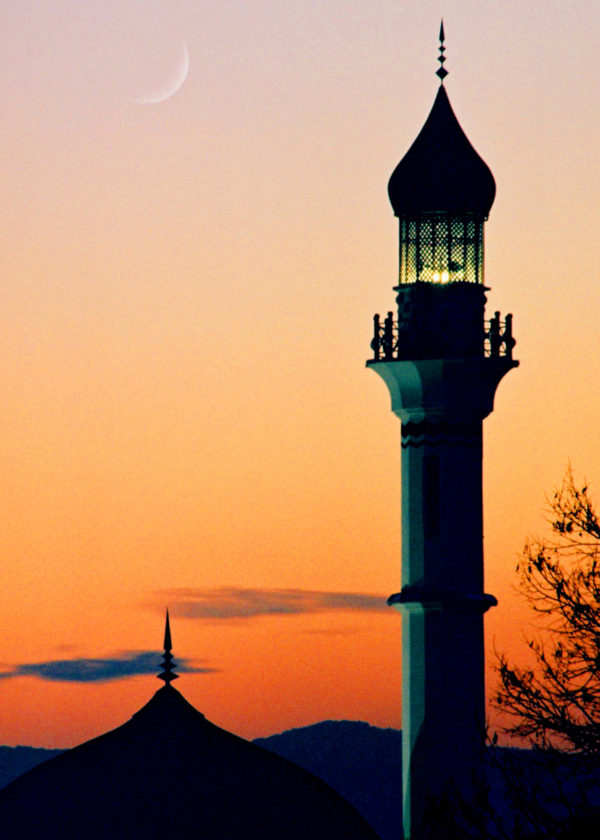Many of these activities can be used as short lesson openers but can also be expanded on and developed in to a full topic – why not let the children’s curiosity and interests guide which areas you choose to focus on, after all, child led experiences can be one of the best ways for children to develop an understanding of themselves and the world in which they live.
I once saw the following songs suggested for teaching about Ramadan – this is a lively and fun way to start your lesson.
I AM FASTING
To the tune: Frere Jacque:
I am fasting, I am fasting
No more food, no more drink
I am good all da-ay, I am good all da-ay
Fast with me, fast with me
RAMADAN IS HERE TODAY
To the tune: London Bridge is Falling Down:
Ramadan is here today, here today, here today
Ramadan is here today, let’s all fast.
Everybody fast and pray, fast and pray, fast and pray
Everybody fast and pray, and be good.
Classroom activities
- Ramadan is the 9th lunar month of the Muslim Calendar. Is there scope to consider lunar and solar calendars here? Why does Ramadan fall 11 days earlier each year? What does it mean to live according to two different calendars? Could we be creative and make diagrams / models of the solar and lunar year?
- Muslims who do not follow their faith completely, do try to make sure they keep Ramadan. What does this say about this time of year?
- Hours of daylight – can we create diagrams to show when the sun rises and sets each day during Ramadan in our country? What are the hours of fasting each day of the month?
- Each day begins in Ramadan when you can tell the difference between a white thread from a black thread laid alongside each other and goes until you cannot see the difference using natural light. Is there a scientific way of showing the intensity of light which would allow to distinguish the two threads? Is this a use of IT?
- Fasting is a practice of different faiths. Which faiths have some kind of fasting within them? You could look at Jewish day of Atonement and Lent for Christianity. Which religion takes fasting more “seriously”? What is involved – create a comparison chart? Why do people fast?
- In Islam it is the duty of every healthy adult Muslim to fast during daylight hours. At what age do Muslims start to fast? Who is allowed not to fast? What does this tell us about the religion?
- You should not have any bad thoughts nor should you do bad deeds as you are supposed to be controlling the actions of your body. You need to overcome selfishness, greed as you develop your self control. Why is self control and discipline important for our school, our community and our country? Design a list of good deeds that members of your school can try to do in your school during Ramadan.
- Fasting helps you to understand what it is like to have no food or drink. You are able to have sympathy for the poor and hungry. So fasting unites you with your fellow human beings who are less fortunate than yourselves. Can you write an imaginary story in less than 500 words, or write a poem on what it would be like to be really hungry? Design an advert asking people to share and care for those who have nothing. What does your school do to help those who have nothing?
- Breakfast is an interesting word, get your class to say it slowly. In Islam you break your fast with a date and a glass of water then have a meal with friends or relatives later on. When did you last fast before having your breakfast? Why is it important to have meals with other people?
- Ramadan was the month when the prophet spent time restfully in prayer and meditation. Muslims sacrifice some material pleasures such as food and drink as an offering to a merciful Allah out of gratitude. What kind of things do you celebrate? Who do you feel thankful for in your life and what for? Design a poster of what you could sacrifice or give up for a week. How do you feel when someone thanks you or celebrates something with you? Can you write a poem, song or rap of thankfulness?
- Ramadan reminds you what it is like to go without things during the 33 days. This experience helps you to appreciate your wealth, your home and what you have. As part of this good feeling you share what you have with others. Muslims see everyone as being equal as we all share the same duty to obey God by keeping this pillar of faith. In small groups research and present on each pillar of Islam. Can the class decide which is the most important pillar in their view? Children may try to do something in the month of Ramadan to copy their parents to see what it is like. Fasting begins when you are a teenager.
- Night of Power recalls when the Angel Gabriel came to the Prophet to reveal the Qur’an to him for the first time. Often before the 27th day and during the final 10 days of Ramadan, many Muslims will read the Qur’an more and offer extra prayers. The sighting of the new moon in Saudi Arabia marks the end of Ramadan and the start of the Eid-ul-Fitr, the festival which marks the end of fasting. Muslims will make sure that they give a contribution to help some of the poor. Zakat-ul-Fitr, the charity of fast breaking. In some areas contributions are made to food banks. Can you do some research on the phases of the moon? How is Eid celebrated? Design a poster advertising an Eid event – do not draw people on it. Design Eid cards?
Quotes from the Qur’an in English
Source: //www.noblequran.com/translation/
183. O you who believe! Observing As-Saum (the fasting) is prescribed for you as it was prescribed for those before you, that you may become Al-Muttaqun (the pious – see V.2:2).
184. [Observing Saum (fasts)] for a fixed number of days, but if any of you is ill or on a journey, the same number (should be made up) from other days. And as for those who can fast with difficulty, (e.g. an old man, etc.), they have (a choice either to fast or) to feed a Miskin (poor person) (for every day). But whoever does good of his own accord, it is better for him. And that you fast, it is better for you if only you know.
To view some useful Ramadan linked resources please click here.
Rev’d Ken Johnson is a retired former Secondary RE Teacher, he’s an active Reverend in the Church. He manages a Religious Education resource centre in Nottingham providing resources from all the major faiths, he runs a Faith Experience service going in to schools transforming halls and classrooms into places of worship and working with pupils to learn about the various faiths in a different way, this is supported by the Nottingham Inter Faith Council. He’s the secretary to the Nottinghamshire SACRE, orginising the majority of CPD for RE in Nottinghamshire, and was involved in the New Nottinghamshire Agreed RE syllabus for 2015-2020.




